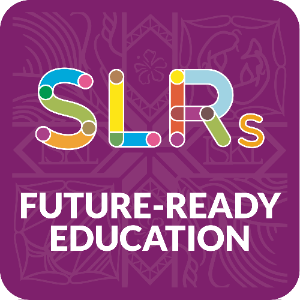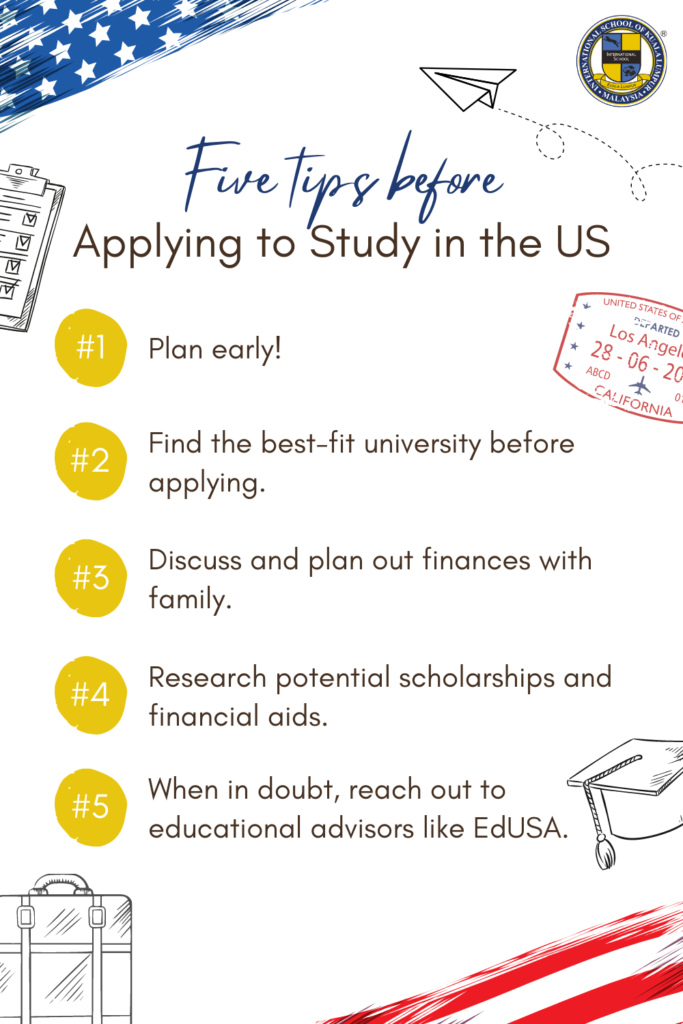

 As the school year comes to a close and with graduation just around the corner, our seniors now face the task of finding colleges and universities they would like to attend once they finish High School. It is a daunting yet exciting feeling as they search for the school that fits them best, or maybe having already decided on a dream school, that they are looking to start applying there. In the recent special presentation by the US Embassy and EducationUSA (EdUSA), a US Department of State network of over 430 international student advising centers in more than 175 countries and territories, some handy tips and reminders were shared that are sure to help our graduating seniors.
As the school year comes to a close and with graduation just around the corner, our seniors now face the task of finding colleges and universities they would like to attend once they finish High School. It is a daunting yet exciting feeling as they search for the school that fits them best, or maybe having already decided on a dream school, that they are looking to start applying there. In the recent special presentation by the US Embassy and EducationUSA (EdUSA), a US Department of State network of over 430 international student advising centers in more than 175 countries and territories, some handy tips and reminders were shared that are sure to help our graduating seniors.
Akash Suri, a representative from the US Embassy and an alumnus of UC Berkeley, California, shared his thoughts and personal experiences on choosing a university best suited for oneself. Below are three key elements of what he had shared:
- Figure out your personality
Our seniors need to identify their interests and passion before applying for a university. They should also consider the broader environment of the university that they want to commit to. This refers to how classes are conducted at the university and their learning styles. For instance, if they learn better in a smaller class and with more personal interaction with their peers and professors, universities that often conduct lectures with class sizes in the hundreds might not be the best fit.
- Think about your financial situation
Thinking and planning one’s financials is wise as tuition fees can be pretty costly in the US. Research the cost of tuition for each school to better understand what the financial situation could be after enrolment. Would students have to take student loans, and how much debt might they accumulate if they decided to go with a particular school?
- Ecosystems are important!
Now, ecosystems refer to the availability of resources and opportunities for students to expand their potential and interest during their college years. Ecosystems are vital for one’s personal and career development because it allows them to gain exposure and opportunities in the field that they’re pursuing. Hence, it is advisable to look into which universities can give students the nurturing and direction needed to excel in their interest areas.
By considering these aspects, our seniors should have a better idea of where to go moving forward.
The presentation was continued by Hanan Anwar, a representative from EdUSA. As COVID19 is still rampant, she gave updates on the current situation in the US and the technicalities our seniors should know when applying to study in the US.
As schools are looking to have open classes in the fall, here are some current general health and safety practices that US universities take:
- All students entering the US would need to be tested negative for COVID19 before departure from their home country. Depending on the university’s policy, students may or may not have to be quarantined upon arrival in the US.
- More than 180 colleges want to mandate vaccinations for those enrolling in the fall. A majority of those have indicated that it is compulsory or strongly advised for students to be vaccinated. Depending on the university, vaccinations may or may not be available for you upon arrival.
On top of the health and safety policies, many schools had to adapt and change their learning structure, which is no different for the universities in the US. There are three different ways our seniors can expect classes to be conducted in the university during their time there:
- In-person: This would be the ideal way to study if not for the pandemic
- Hybrid model (In-person & online): Lectures are usually conducted in small classes where students can be socially distanced.
- Online: There are two categories of online learning — synchronous (watching a live-streamed lecture) and asynchronous (watching a pre-recorded lecture).
Now that there is a general understanding of what to expect when our seniors arrive on the shores of their selected university, it is time to know what the application process would be like.
- University applications during COVID19
Some colleges have waived their application fees in light of the pandemic, and about 60% of universities in the US do not require the SAT/ACT for Fall 2022 applications. With this in mind, seniors should also remember to check if specific language proficiency tests are needed for them to apply for a particular university.
- Visa applications
One should check with the US Embassy here in Kuala Lumpur to find out the visa and travel requirements for them to get to the US. As mentioned earlier, COVID19 testing is compulsory before departure (3 days before the flight), and a negative test result is required to enter the US according to CDC’s order. And in the case that one has contracted COVID19 before, proof of recovery is needed before they can travel.
Nonetheless, always consult the university website or schedule a meeting with the university’s advisor to receive the most up-to-date information on all the university’s policies.
Finally, here are a few more tips and reminders before embarking on this journey to study in the US:
- Plan early! Students should prepare applications ahead of time to avoid any complications later in the process.
- Find the best fit university before applying. One should reflect on their interests and passion and explore their values to see which university resonates with them to get the most out of their university experience.
- Discussing and planning out one’s finances with their family can help navigate the funds needed to study in a university in the US.
- Research potential scholarships and financial aids. Suppose one is eligible for scholarships or financial assistance. In that case, they should give it a shot and apply for those to help relieve any financial burdens that may crop up later in their university life.
- When in doubt, always reach out to EdUSA for assistance by scheduling an advising appointment with them.
ISKL Panthers are fully equipped with the skills and experience to thrive and flourish in university, especially during these times. So, all the best to our graduating seniors in finding their best fit university, and may they enjoy starting this new chapter of their life!


